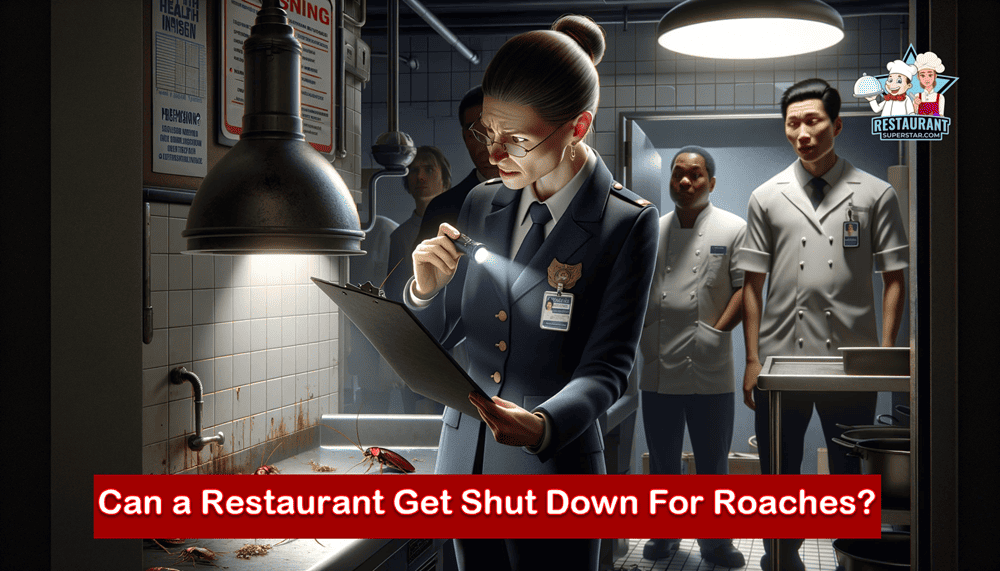How to Be a Good Restaurant Host – 21+ Easy Tips

Hey there, thanks for visiting RestaurantSuperstar.com. If you’re looking for information on How to Be a Good Restaurant Host you’re in the right place. In this article we will go into great detail on all the responsibilities of a restaurant host and how to be a good one. We will also answer other questions you might have. If you enjoy the article please share it with your restaurant industry friends and colleagues.
In order to be a good restaurant host you should always be friendly and have a smile on your face. You are the first point of contact for guests so make sure to leave a good impression. Ask questions: Do they prefer a booth or a table? How many are in your party? Make the guests feel welcome.
How to Be a Good Restaurant Host
Keep your visitors happy in various ways, including ensuring that the restaurant is in order, ensuring that guests are satisfied with their experiences, and monitoring what is occurring at each table.
Remaining Orderly
Before the beginning of your shift, check to see that you have all the necessary supplies. At your host stand, you ought to have a sufficient quantity of pens, highlighters, a seating map, and paper for taking notes. If there is anything that you require, please speak with your manager about having it brought to you. Additionally, make sure that there is enough freshly washed silverware available.
Greeting Guests
It is important to smile when greeting guests and making them feel welcome in the restaurant. You are the first opportunity the restaurant has to create an impact on new customers. Thus you must be attentive anytime new people enter the establishment. Guests should be warmly greeted, and if they are regulars, they should be called by their names. If you are occupied with another guest when someone arrives, recognize the new arrival by giving them a friendly grin or saying something along the lines of “I’ll soon attend to you”
Seating Your Customers
Bring your guests to the table you’ve reserved for them. Be careful not to walk any quicker than your clients are. It is a good idea to carry the menus and cutlery to the table where you want them to sit while walking slightly in front of them. Before allowing the customers to sit down, ensure the table is clear of hazards.
What Does a Host Do at a Restaurant?
Host hosts and hostesses greet customers and then show them their assigned seats. A good host must be completely aware of the movement of service at all times in the dining room. They have to manage reservations, the seating rotation for servers, and the wait periods for customers while extending a warm welcome to each guest who enters through the door. In certain establishments, the host is responsible for answering phones, processing customer payments, and packaging takeout orders.
What Is the Role of a Restaurant Host?
The host will greet guests as they enter the restaurant and show them to their table in the dining room. From the point of view of the guest, the host will also take their order. However, a host or hostess at a restaurant is responsible for more duties than just greeting customers and seating them. A good restaurant host should have the dining room floor plan committed to memory, including table numbers, the number of people who can sit at each table, and the location of the server sections.
Host vs. Maitre D
The duties of a maitre d’ are comparable to those of a host or hostess, but the maitre d’ has additional responsibilities. A maitre d’, pronounced “may-tra-dee,” is responsible for the overall management of the front of the house, including the control of the service personnel and the general happiness of the guests. There will not be a maitre d’ working in a casual restaurant, in contrast to the presence of a host or hostess.
Host vs. Hostess: What Is the Difference?
The roles of “host” and “hostess” are interchangeable in the context of a restaurant setting. The term “host” is more commonly used to refer to male staff members, whereas “hostess” refers to female staff members.
Floor Management: What Is It?
Dining room floor management is the term used to describe the art of managing open tables, bookings, and people waiting in line. The host or hostess is responsible for looking over the reservations and choosing a seat for each guest at the right table at the beginning of their shift. Reservation software, however, can be of assistance with floor management.
Responsibilities Of a Host Explained
Requesting Reservation
Taking reservations is not as simple as it may seem at first glance. If you accept reservations over the phone, the workers who answer the phones at your establishment should be educated to ask for the following information:
- The total number of visitors
- If they want booster seats or high chairs
- They should tell if walkers, wheelchairs, and assistance animals are permitted.
- Table or booth?
- Do they prefer being indoors or outside?
- Restrictions imposed on one’s diet
- Birthdays as well as other occasions
- The hour and the day
- Details about who to contact
Welcoming Guests
The value of greeting cannot be overstated! A guest’s experience can be tarnished by a host or hostess’s lackluster introductions. As part of your on-the-job training as a host, emphasize the importance of greeting your guests.
Controlling Wait Times
At a busy restaurant, it’s not always possible for one set of visitors to arrive simultaneously. Waiting lines can be good for a company if they are handled correctly. The host or hostess is responsible for this, and it’s not an easy assignment.
Placing Guests at Tables
Seating visitors may appear simple to the untrained eye. When it comes to seating arrangements, a host or hostess has to balance several factors. Decisions on floor designs and rotation are also taken into consideration.
Aiding the Server Staff
Prepare your front-of-the-house workers to think of themselves as having two customers: hungry guests and the team already there to serve them. Keeping everyone pleased is the host’s responsibility. Sitting all customers and supporting the server personnel during busy shifts often seems like an impossible chore. Still, there are ways to accomplish both goals.
Take Orders and Carry Them out
The host crew must have the flexibility to handle carryout orders as required. Seating and floor management consume a lot of time. Suppose your restaurant has an online ordering system. In that case, the orders must be checked twice, wrapped, and given to the rightful consumer.
Checkout Station
Pay-your-server is a common practice in many restaurants, although there are still those that still use cashiers. This individual is accountable for operating the cash register and collecting customer payments. In addition to the other hosting chores, this is one more thing that must be taken care of.
Host Dress Code
Your host staff and all other personnel working in the front of the house are expected to adhere to the appropriate dress code.
What Does Double Seating or Over Seating Mean?
When a host or hostess places an excessive number of guests in the same portion of a server, this is known as overcrowding or double sitting. It is strictly discouraged for several reasons and may result in tension amongst staff members.
Essential Restaurant Hosting Tasks
It’s a lot of work to serve, cook, clean, manage workers, and deal with 100 different kinds of customer service. All of them necessitate a combination of saintly patience and demon-like concentration.
Your hosts are the first point of contact for your clients.
If you’ve never heard of it before, here’s a heads-up. Customer service begins with greeting the host of your restaurant as they walk in the door. What impression customers have of your firm depends entirely on the person you pick to represent you at that station.
However, they are mostly unseen.
The host is responsible for coordinating, ushering, and removing barriers that may hinder a pleasant eating experience.As a result, they continue to be undervalued and ignored by both employees and customers.
Hosts, like Waiters, Need Extensive Training
The job that hosts undertake is just as sophisticated and important to the successful functioning of your restaurant as the work done by your waiters, cooks, and kitchen expediters, despite the fact that the training required by most restaurants for hosts is very easy. Employees at all levels are required to be knowledgeable with all aspects of their workplace, even if they are not directly involved in food preparation or customer service. A ready supply of relevant replies must be stored in their minds.
Due to the fact that just removing people off the path isn’t enough
There is more to being a good host than just escorting your guests from the foyer and placing them at the next table. Great servers must always have a grin on their face while they’re serving clients.
Hosts Must Provide Enough Seating for Everyone.
When making a reservation, it’s usual for guests to arrive without all of their party members. Annoying a paying client by refusing them a seat because someone else is running late or parked their vehicle is not good customer service.
When It Comes to Seating, It’s Usually a Numbers Game.
Every time a party of four is placed at a six-top table instead of a four-top, an untrained or inept host might be depriving their business the equivalent of a full table’s worth of profits. In addition, the front-of-house staff is losing significant tips due to the issue. Let’s say we suppose that a table can only be rotated three or five times throughout a shift. For all parties involved, this leads to a huge loss of money.
Food Allergies and Special Events Should Be Kept in Mind by Hosts
A customer’s pleasant gesture of communicating any special requests or needs ahead of time should be taken into consideration while processing phone reservations or keeping track of appointments scheduled via third-party sources. When a guest arrives, it is important for the host to link their ideas with the guest’s and transmit any particular orders to the server and chef before the meal is served.
In Addition, Bear in Consideration the Needs of Those with Impairments or Special Needs.
Sadly, this early notice is not always possible, especially when dealing with sensitive situations. When hosting guests with bigger frames or obvious impairments, it is the host’s duty to provide them with seating that is solid, secure, and pleasant without attracting attention to themselves.
Hosts Can Help Your Restaurant Feel Full
Restaurant hosts must creatively seat clients in order to maximize seating capacity even during slack periods that are characteristic of all businesses. Using this strategy, you have a far better chance of attracting customers who are merely passing by or curious in eating there.
And Be the Extra Hand on Deck When It Truly Is
Your host may be the most useful weapon in your armory when service is delayed, particularly on weekends or during your busiest moments. During certain times, this is particularly true. Rather, he or she may look over the whole scene, evaluate which areas need the most help, and then shift resources or join in on the endeavor to provide a helping hand.
FAQS
What Makes a Good Hostess at a Restaurant?
When it comes to being a good host or hostess, having a kind and inviting personality is crucial. Despite dealing with dissatisfied customers, they are able to maintain their composure and work well with others. They must be very organized in order to maintain seating charts and seat clients in the order in which they arrive or according to their appointments. Hostessing a successful event requires an understanding of traffic flow, strong time management skills, and the ability to give outstanding customer service.
Is It Difficult to Be a Host in a Restaurant?
The task at hand is not very difficult. As a host, in addition to taking people’s orders and bringing them their meals, your duties also include seating customers and answering the phone in the capacity of a hostess.
How Do You Host at a Restaurant?
Before beginning a shift as a waitress, you should ensure that the host stand has all the necessary supplies. You should greet your customers as they enter the restaurant with a friendly grin and ask how many individuals are in their group. As the host, you’re in charge of seating everyone at their assigned table. Keep a well-organized seating map to avoid overworking a single server and to ensure that all wait staff is treated equally.
How Many Experiences Are You Required to Be a Restaurant Host?
- Great client service skills
- Optimistic attitude
- Team building
- Competence in relating to people
- Collaborations
- Time management and problem-solving
- Superb client service.
- Negotiation skills.
- Ability to work under pressure.
- Understanding skills.
- Capacity to work well within a group
- Meeting deadlines.
- Patience and calmness.
- Computer expertise
What Should a Hostess Say?
- “Welcome to our restaurant, and may I ask how many guests will be dining with us today?
- “Hello, can I get the identity on the reservation?”
- “I’ll walk down to your table.”
- “Thank you for coming”
- “Hello, welcome.”
How Do I Become a Wonderful Hostess?
- Ensure that there is sufficient food and drink for everyone.
- Make the area more comfortable and inviting.
- You should omit some of the conversational aspects.
- Make sure your guests will, for the most part, get along.
- You should give your guests all the information they require in advance.
- Get a head start on the preparations by starting early.
How Do You Train to Be a Host?
In most restaurants, a diploma from an accredited high school is required to work as a host or hostess. It’s possible that during training, they’ll be asked to operate a cash register, manage a ledger, oversee tables and wait staff, or perform any other tasks typical in restaurants. The most excellent hosts and hostesses will be prepared to discuss the meal with the guests. They will be able to provide suggestions for wines or other beverages.
Do Hosts Usually Get Tips?
It varies from restaurant to restaurant. Certain restaurants pay their hostesses a wage that is at least equal to or greater than the minimum wage, and they do not earn tips. At some other restaurants, the hourly wage is approximately $4, and servers receive tips based on the business they bring in.
Hosting or Server: Who Makes More Money?
Average yearly wages for hostesses and servers were $24,800 and $27,470, respectively, according to the Bureau of Labor Statistics as of 2020.
What Is the Salary of a Restaurant Host?
The salaries of hosts and hostesses in the United States can range anywhere from $12,910 to $27,180, with $17,624 as the typical compensation for the position. The highest-earning 83 percent of Hosts and Hostesses make $27,180, while the middle 50 percent of Hosts and Hostesses make between $15,985 and $17,608.
As a Hostess, How Do I Rotate a Table?
You should seat a table in the first section. The second section, then the third section, then back to the first section, and continue doing so until all the tables have been seated. This will ensure that each server has an equal amount of work to do and an equal amount of tips, which will keep everything fair. This pattern is referred to as rotation. As a general guideline, you should always make every effort to adhere to it.
Does a Host Take Orders?
Yes. They engage in customer conversation by greeting them, responding to questions, and providing them with up-to-date wait times. Some hosts even take drink orders. Hosts are also responsible for communicating with servers, addressing seating requirements, and other specifics such as the size of the party.
What Are the Responsibilities of a Host and Hostess?
The tasks of a host or hostess include greeting customers, delivering accurate wait times, and leading clients to the dining and bar sections of the establishment. To be successful in this position, you should have strong organizational and people skills. Your major role will be to guarantee that our guests have a great eating experience from start to finish. In addition, you must be able to work in shifts.
Conclusion
Engage in conversation with guests as they depart. You are the last person the visitors will interact with. Make sure to say goodbye to them warmly as they leave the establishment. Because of this, when they depart, they will have the impression that they had a great time dining.
Jeff Smith is a Restaurant Consultant with over 20 years of hospitality experience ranging from server to owner and general manager. He focuses on Restaurant POS technology as well as restaurant marketing. Make sure to check out our world famous restaurant resources page for a comprehensive offering of hand picked resources and tools to help your business. You can also check out some of our other restaurant business articles.




